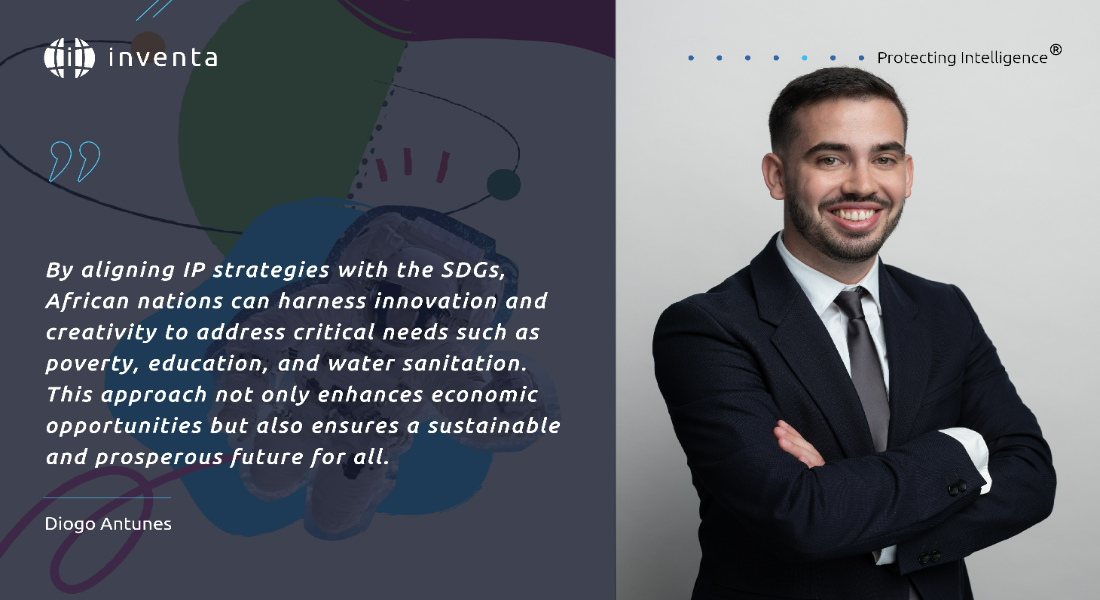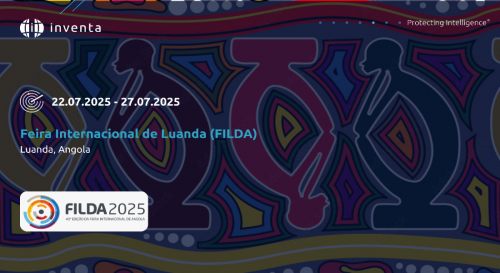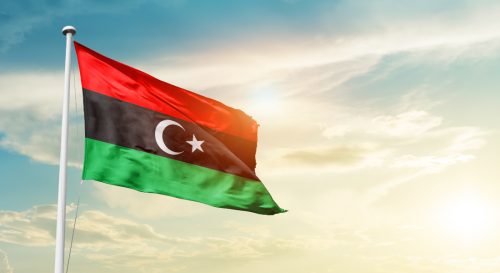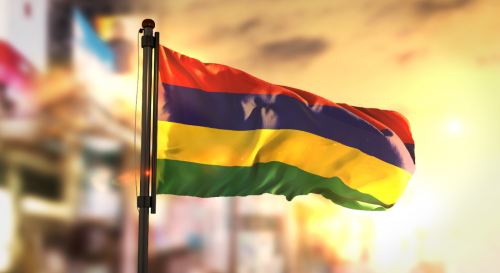
World IP Day 2024: Intellectual Property as a Catalyst for Achieving Sustainable Development Goals in Africa
Every year on April 26th, we celebrate World Intellectual Property Day, an occasion set aside to reflect on the crucial role that intellectual property rights play in fostering innovation and creativity across the globe. This year we explore how innovations protected by intellectual property can act as critical catalysts in achieving the Sustainable Development Goals in Africa. The interplay between intellectual property (IP) and sustainable development in Africa presents a unique opportunity to foster social and economic growth. Diving deeper into the implications of IP on critical Sustainable Development Goals (SDGs) such as no poverty, quality education, and clean water and sanitation, it becomes clear that the strategic use of IP rights can accelerate progress across the Continent.
IP and Poverty Reduction
Patent systems and IP rights can be crucial in stimulating local innovation that addresses poverty directly. For instance, patents on agricultural technologies can help African farmers increase crop yields, manage pests more effectively, and enhance food security, directly contributing to SDG 1 No Poverty. However, for this potential to be reached, it is essential that these innovations are accessible and affordable to those who need them most. Local governments and international bodies must work together to ensure that IP laws do not hinder but rather facilitate the dissemination of life-changing technologies.
Education Through IP
Quality education (SDG 4) is another area where IP holds significant promise. Educational technologies, such as e-learning platforms and educational software, often rely on copyright protection. These tools can revolutionize educational access in remote areas of Africa, providing scalable solutions that can be monetized through IP. Additionally, fostering an understanding of IP rights among young African entrepreneurs can inspire students to engage in creative solutions, thus driving a culture of innovation from the ground up.
As Africa continues to face complex developmental challenges, intellectual property can serve as a powerful tool for sustainable growth.
Clean Water and Sanitation Innovations
Regarding clean Water and Sanitation (SDG 6), IP can play a transformative role by way of protecting innovations that provide solutions to water management issues in Africa. Patented technologies in water purification, efficient plumbing systems, and sustainable water management can provide foundational changes that improve the quality of life in the Continent. The challenge lies in ensuring that the patented solutions are not restricted by high costs or IP disputes, that may make these inaccessible to the communities that need them the most.
A compelling case in South Africa demonstrates the potential of IP in transforming agricultural waste into valuable resources. Researchers at Stellenbosch University have developed a method to convert waste pulp into a new feedstock for the chemical industry. This innovation not only supports SDG 12 (responsible consumption and production) but also contributes to economic sustainability by creating new products from waste materials.
Moving Forward with Strategic IP Management
To capitalize on IP's potential to support sustainable development in Africa, policymakers, business leaders, and the international community must adopt a nuanced approach. This includes:
- Developing IP policies that are aligned with national development goals and are accessible to local innovators.
- Investing in IP education and awareness campaigns to nurture a culture of innovation and creativity.
- Promoting public-private partnerships that leverage IP for social and economic benefits.
- Ensuring equitable access to patented technologies through licensing agreements or public-private partnerships.
An IP Marathon held in Cape Verde is an excellent example of how groundbreaking initiatives can drive IP education. Young Cape Verdeans were encouraged to devise solutions using IP, focusing on real-world challenges in sectors such as energy and tourism. This event not only educated participants on IP strategies but also demonstrated practical applications, fostering a deeper understanding and appreciation for IP in nurturing local innovations.
As Africa continues to face complex developmental challenges, intellectual property can serve as a powerful tool for sustainable growth. By aligning IP strategies with the SDGs, African nations can harness innovation and creativity to address critical needs such as poverty, education, and water sanitation. This approach not only enhances economic opportunities but also ensures a sustainable and prosperous future for all.
Lista de Territórios
Não existem resultados para a sua pesquisa.
- África
- África do Sul
- Angola
- Argélia
- Benin
- Botsuana
- Burkina Faso
- Burundi
- Cabo Verde
- Camarões
- Chade
- Comores
- Costa do Marfim
- Djibuti
- Egito
- Eritreia
- Eswatini (Suazilândia)
- Etiópia
- Gabão
- Gâmbia
- Gana
- Guiné
- Guiné-Bissau
- Guiné-Equatorial
- Lesoto
- Libéria
- Libia
- Madagáscar
- Maiote
- Malaui
- Máli
- Marrocos
- Maurícias
- Mauritânia
- Moçambique
- Namíbia
- Níger
- Nigéria
- Quénia
- República Centro-Africana
- República Democrática do Congo
- República do Congo
- Reunião
- Ruanda
- Saara Ocidental
- São Tomé e Principe
- Seicheles
- Senegal
- Serra Leoa
- Somália
- Sudão
- Sudão do Sul
- Tanzânia
- Togo
- Tunísia
- Uganda
- Zâmbia
- Zanzibar
- Zimbábue
- África (OAPI)
- África (ARIPO)
- Mais Territórios
- Macau
- Maldivas
- Portugal
- Timor Leste
- Marca da União Europeia (EUIPO)
- Marca Internacional (Sistema de Madrid)
- Patente Europeia (IEP)
- Tratado de Cooperação em matéria de Patentes (PCT)




